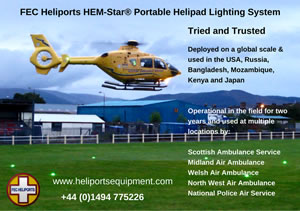U.S. DEPARTMENT OF HOMELAND SECURITY2003-04-24 15:53:51
TSA Begins Training Federal Flight Deck Officers Volunteer Pilots Add Another Layer of Security
Glynco, GA -The first class of commercial airline pilots who volunteered to carry handguns in the cockpit is being trained this week in a class run by the Transportation Security Administration. The inaugural group of Federal Flight Deck Officer (FFDO) candidates will spend the week learning how to use a handgun and apply defensive tactics in an effort to stop a terrorist or anyone else attempting to hijack an airplane in flight.
Those who graduate Saturday will be issued a .40 caliber semi-automatic pistol to use in defense of the plane's cockpit. Pilots in this prototype class will receive 48 hours of training that includes firearms instruction, defensive tactics, instruction in the use of force, legal liability and information on how to safely transport their weapons. Training for each of the pilots who volunteered for the program started April 13.
"This program meets yet another congressional mandate," TSA Administrator Adm. James Loy said. "A highly qualified task force consisting of pilots, airlines, union groups and training experts worked diligently to develop this important and specialized program. Great care was taken to address training issues that will be exclusive to this program and we look forward to the deployment of these pilots as they add another layer of security to the skies."
Pilots for the inaugural class were nominated by the Airline Pilots Association and the Coalition of Airline Pilots Associations and selected by TSA based on the need to have a diversified test group.
Although Congress did not appropriate funds to start the program TSA set aside $500,000 to establish the training process, buy equipment and teach the prototype class. TSA expects to spend about $2,100 to train each pilot volunteer, and an additional $4,100 to select and equip each trainee. For the prototype class, TSA will spend slightly more due to the addition of room, board and travel expenses. Those expenses will not be funded for future candidates.
Pilots who successfully complete the training will be sworn in as federal law enforcement officers who will be known as federal flight deck officers, with jurisdiction limited to the flight deck, or cockpit. To maintain proficiency, pilots will complete recertification training each year.
Glynco, GA -The first class of commercial airline pilots who volunteered to carry handguns in the cockpit is being trained this week in a class run by the Transportation Security Administration. The inaugural group of Federal Flight Deck Officer (FFDO) candidates will spend the week learning how to use a handgun and apply defensive tactics in an effort to stop a terrorist or anyone else attempting to hijack an airplane in flight.
Those who graduate Saturday will be issued a .40 caliber semi-automatic pistol to use in defense of the plane's cockpit. Pilots in this prototype class will receive 48 hours of training that includes firearms instruction, defensive tactics, instruction in the use of force, legal liability and information on how to safely transport their weapons. Training for each of the pilots who volunteered for the program started April 13.
"This program meets yet another congressional mandate," TSA Administrator Adm. James Loy said. "A highly qualified task force consisting of pilots, airlines, union groups and training experts worked diligently to develop this important and specialized program. Great care was taken to address training issues that will be exclusive to this program and we look forward to the deployment of these pilots as they add another layer of security to the skies."
Pilots for the inaugural class were nominated by the Airline Pilots Association and the Coalition of Airline Pilots Associations and selected by TSA based on the need to have a diversified test group.
Although Congress did not appropriate funds to start the program TSA set aside $500,000 to establish the training process, buy equipment and teach the prototype class. TSA expects to spend about $2,100 to train each pilot volunteer, and an additional $4,100 to select and equip each trainee. For the prototype class, TSA will spend slightly more due to the addition of room, board and travel expenses. Those expenses will not be funded for future candidates.
Pilots who successfully complete the training will be sworn in as federal law enforcement officers who will be known as federal flight deck officers, with jurisdiction limited to the flight deck, or cockpit. To maintain proficiency, pilots will complete recertification training each year.
For more information contact:
Transportation Security Administration
Mail Stop: TSA-6
400 7th St. Sw
Washington
D.C. 20590
United States Of America
